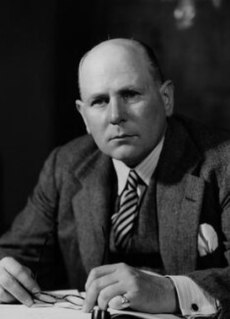A Quote by James Agate
In her early days she had that beatific expression characteristic of Victorian prettiness - like a sheep painted by Raphael.
Quote Topics
Related Quotes
From an early age she had developed the art of being alone and generally preferred her own company to anyone else’s. She read books at enormous speed and judged them entirely on her ability to remove her from her material surroundings. In almost all the unhappiest days of her life she had been able to escape from her own inner world by living temporarily in someone else’s, and on the two or three occasions that she had been too upset to concentrate she had been desolate.
Witch Baby wanted to ask Ping how to find her Jah-Love angel. She knew Raphael was not him, even though Raphael had the right eyes and smile and name. She knew how he looked--the angel in her dream--but she didn't know how to find him. Should she roller-skate through the streets in the evenings when the streetlights flicker on? Should she stow away to Jamaica on a cruise ship and search for him in the rain forests and along the beaches? Would he come to her? Was he waiting, dreaming of her in the same way she waited and dreamed?
Raphael lifted a finger, tracing it over her cheekbone. She flinched. Not because he was hurting her. The opposite. The places he touched ... it was as if he had a direct line to the hottest, most feminine part of her. A single stroke and she was embarrassingly damp. But she refused to pull away, refused to give in." (page 33 , Gollancz edition)
One of the patients that really stands out for me was a middle-aged woman who actually had HIV in the early days, and helping her kind of come to terms with that. She had rather late-stage illness, but just helping her, sort of cope with the challenges of the disease and the infections and all that, but also her social issues, like, coming out to her family about the illness, and a very religious family.
She still had her bad days, no question, when the black dog of depression sniffed her out and settled its crushing weight on her chest and breathed its pungent dog breath in her face. On those days she called in sick to the IT shop where, most days, she untangled tangled networks for a song. On those days she pulled down the shades and ran dark for twelve or twenty-four or seventy-two hours, however long it took for the black dog to go on home to its dark master.
Occasionally, on screen, Barbara [Stanwyck] had a wary, watchful quality about her that I've noticed in other people who had bad childhoods; they tend to keep an eye on life because they don't think it can be trusted. After her mother was killed by a streetcar, she had been raised in Brooklyn by her sisters, and from things she said, I believe she had been abused as a child. She had lived an entirely different life than mine, that's for sure, which is one reason I found her so fascinating. I think her early life was one reason she had such authenticity as an actress, and as a person.
She had been sharing a house with him for a week, and he had not once flirted with her. He had worked with her, asked her opinion, slapped her on the knuckles figuratively speaking when she was on the wrong track, and acknowledged that she was right when she corrected him. Dammit, he had treated her like a human being.
a few days ago she had been wandering around with a swatch of black silk tied over her eyes. Syrio was teaching her to see with her ears and her nose and her skin, she told him. Before that, he had her doing spinds and back flips. "Arya, are you certain you want to persist in this?" She nodded. "Tomorrow we're going to catch cats." "Cats." Ned sighed.
I had dinner with Marlene Dietrich in the early 1970s. I went to pick her up and she had someone with her, a dreadful man. He was writing a book about her, and he said to her, 'You're so cold when you perform,' and she said, 'You didn't listen to the voice.' She said the difficulty was to place the voice with the face.
In a way, her strangeness, her naiveté, her craving for the other half of her equation was the consequence of an idle imagination. Had she paints, or clay, or knew the discipline of the dance, or strings, had she anything to engage her tremendous curiosity and her gift for metaphor, she might have exchanged the restlessness and preoccupation with whim for an activity that provided her with all she yearned for. And like an artist with no art form, she became dangerous.
At that moment a very good thing was happening to her. Four good things had happened to her, in fact, since she came to Misselthwaite Manor. She had felt as if she had understood a robin and that he had understood her; she had run in the wind until her blood had grown warm; she had been healthily hungry for the first time in her life; and she had found out what it was to be sorry for someone.



































